While fashion styles and trends come and go, there is one exception that has stood the test of time for decades: the graphic t-shirt. Graphic t-shirt designs can run the gamut from utilitarian to cute to comical or clever. What they all have in common is the fact that they offer the wearer a way to share a bit of who they are, what they believe, and what their interests are with the world around them. There are few other clothing styles that offer such a clear way to convey a message.
So, we know what makes the graphic t-shirt so popular, but what’s it take to make an enticing graphic t-shirt design that will look great and be marketable to a wide range of people?

Simplicity Reigns Supreme
It can be tempting to pour on the detail when designing a graphic t-shirt. After all, these t-shirts are designed to communicate who you are and what you love, right? Here’s the thing, when it comes to getting your message across on a t-shirt, less is definitely more.
Think about it, you’ll be wearing this design while going about your day-to-day activities. That means you’ll likely be in motion most of the time. An overly-detailed design or complex, wordy message is going to be difficult to decipher. Do you really want people stopping you or staring at you while they attempt to read your entire t-shirt as you go about your day? That’s likely to get awkward fairly quickly. Your design message should be simple enough to take in at a glance.
Additionally, complicated or overly-busy designs will require more effort (and cost) to produce and could lead to poor-quality screen-printing results. To avoid these issues, stick with one simple idea, image, or brief message and focus your graphic t-shirt design around this one core element. Eliminate any unnecessary detail, and stick to a simple color palette.
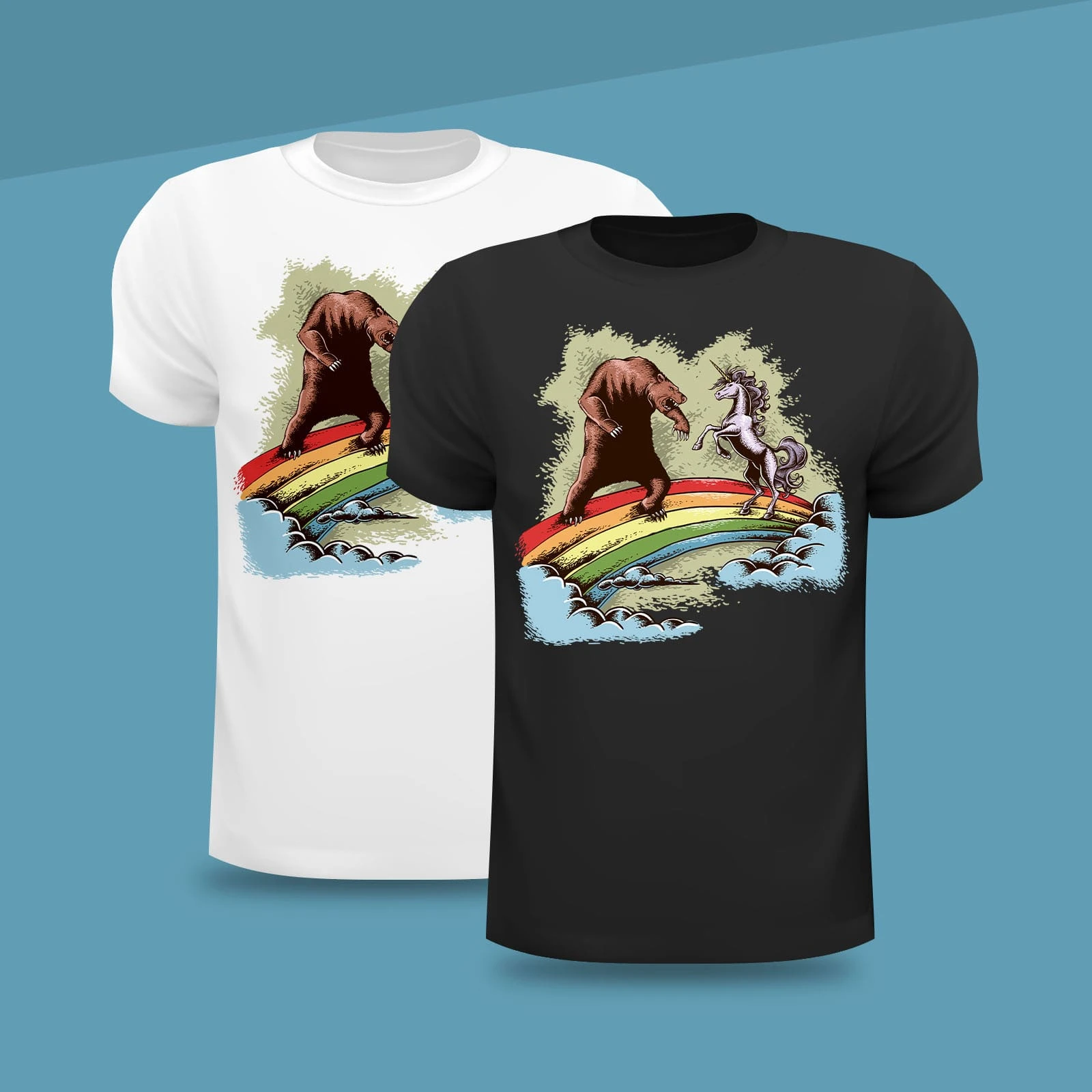
Mind The Edges Of Your Design
Don’t neglect the borders, edges, and background of your design. This is a classic mistake. Your design may look great and seem clear and straightforward on paper, only to appear with an awkward cut-off edge or obvious border on your finished t-shirt. The best way to avoid this is to eliminate the background of your design altogether. This is by far the most common technique, as it is difficult to print a fixed background on a flexible fabric. If you must have a background, take care to communicate exactly where and how the edges of the design should appear on your t-shirt to avoid any unintended adverse results.
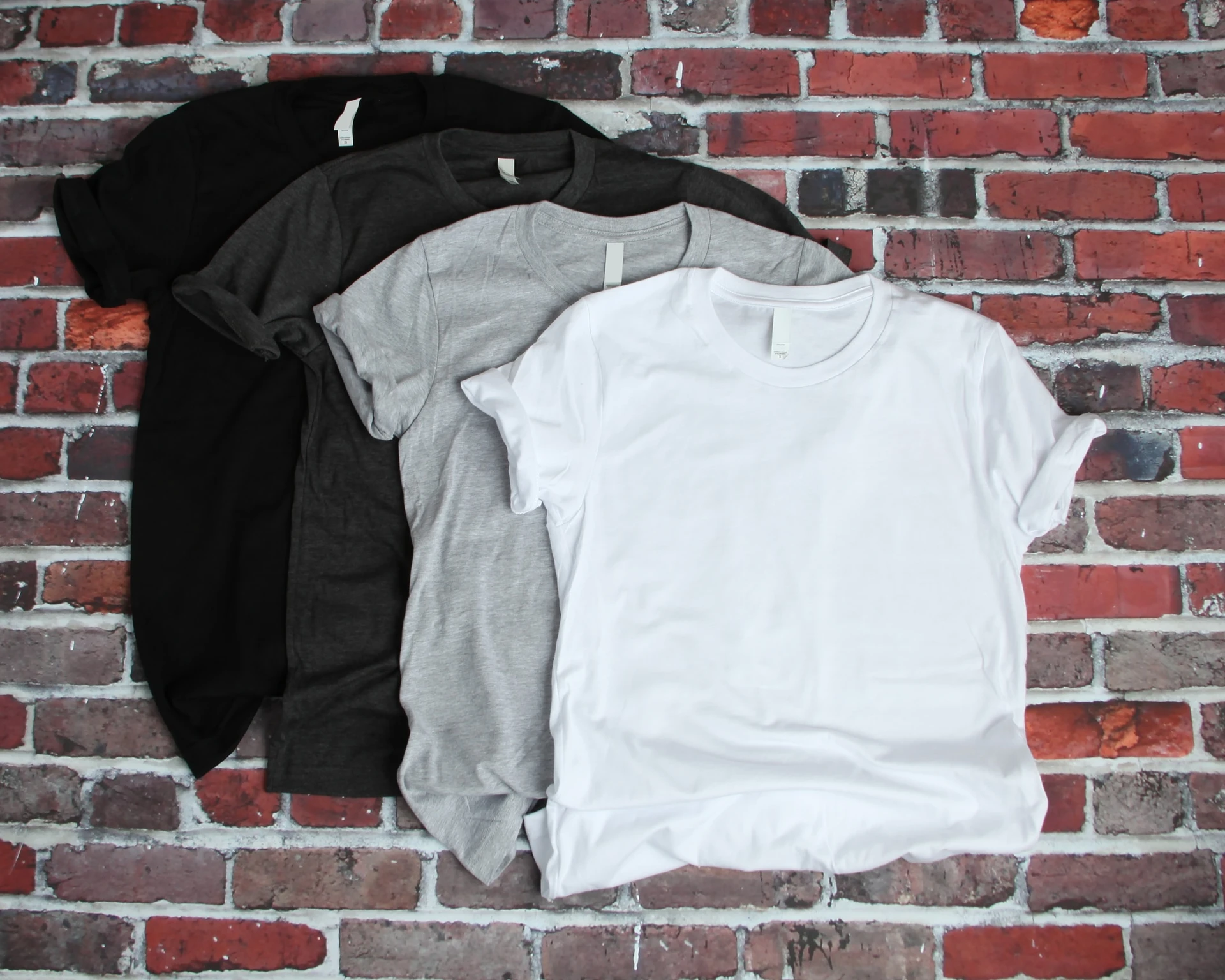
T-Shirt Color & Fabric Considerations
When compared to other types of graphic design, the color, and material that the design will be printed on play a particularly large role in graphic t-shirt design. A design that looks crisp and sharp on a sheet of white paper may take on a completely different appearance when printed on a colored jersey material of a t-shirt.
If you are designing a graphic t-shirt for yourself or for a team of users who will all wear the same color and style, then it is a simple matter of deciding which color and style of design will look best against the particular color and variety of t-shirt that you will be ordering.
However, if you are creating a graphic t-shirt design with the intention of making them available for purchase by a wider audience, you are likely going to need to offer your design on a variety of different garments in different colors and textures. Most commonly, commercial graphic t-shirt designs are available on both classic t-shirts and sweatshirts. The different weights and textures of these two materials can have a dramatic impact on the way that your completed design appears so it is important to consider all of the different materials for your final product.
You will also want to consider the color of the garments that your design will be printed on. If you will be making your design available in black, white, or heather gray neutral colors only, then you can probably stick with one design color option. If you’ll be allowing customers to choose from a wide array of colors, you are going to need to think about how your design will appear against each of these different colors, and you may need to offer a variety of printing ink color choices to ensure that your design looks its best on different background colors.
Again, this is where the simplicity of design can be a big benefit. A basic one-color design imprint will be easier to match or adjust for varying background colors and textures than a more complicated, multi-color design might be.
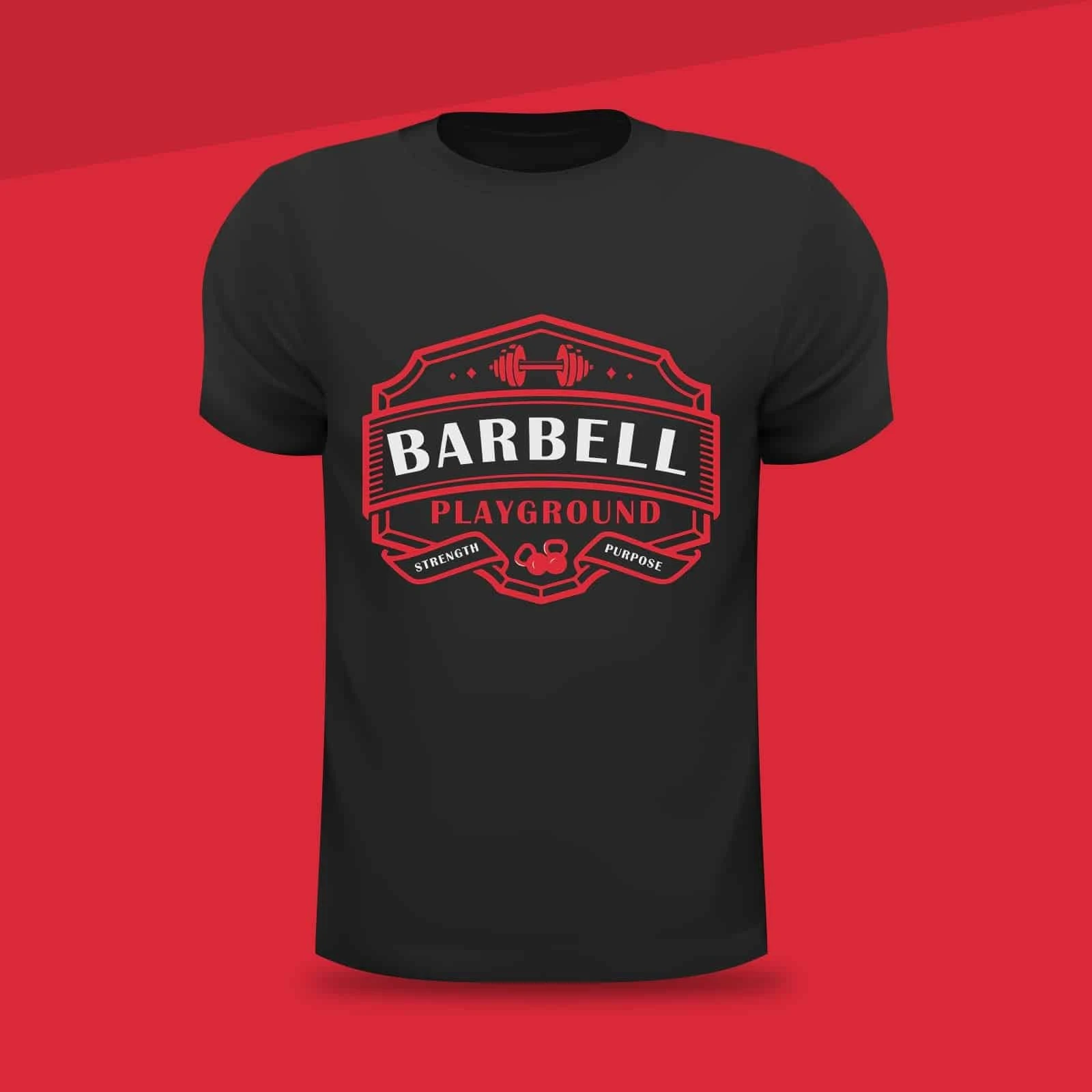
Design Placement
Where you place your design on the t-shirt will play a big role in the design itself. Will your design be featured as a simple logo on the sleeve or front chest pocket area of a t-shirt? If your design will be used on a pullover or zip-up hoodie, will the design appear on the back of the garment, or will it be bisected by the zipper or front pocket on the front of the sweatshirt?
These are all important considerations that you’ll need to take into account before submitting or approving your final graphic design. You will also need to be aware of the final scale and size of your design and the impact it may have on the look of the design.
If you are designing a one-off t-shirt for yourself or a team, then you can always snip out a paper version of your final design and hold it up to a similarly sized garment as you are wearing it to get an idea of how the finished design will rest on the final product. This process requires a bit more thought if you’ll be creating a design for a variety of clothing styles or even for the same style in a variety of sizes.
A design that is sized to fit on a standard adult athletic t-shirt will need to be scaled up or down considerably to fit on a slim-fitting tank top, an oversized hoodie, or a child’s t-shirt. You can avoid any last-minute printing complications or design scaling issues by using vector images to create your graphic t-shirt designs.
Vector artwork is scalable and guarantees that the integrity of the imagery will remain intact at any size. While vector artwork is the gold standard for graphic t-shirt design, if it is not feasible to use vector artwork, be certain that your imagery is rendered in as high of a resolution as possible for the best results. All image files should be a bare minimum of 200 dpi or higher at the size that they will be printed to ensure quality printing.
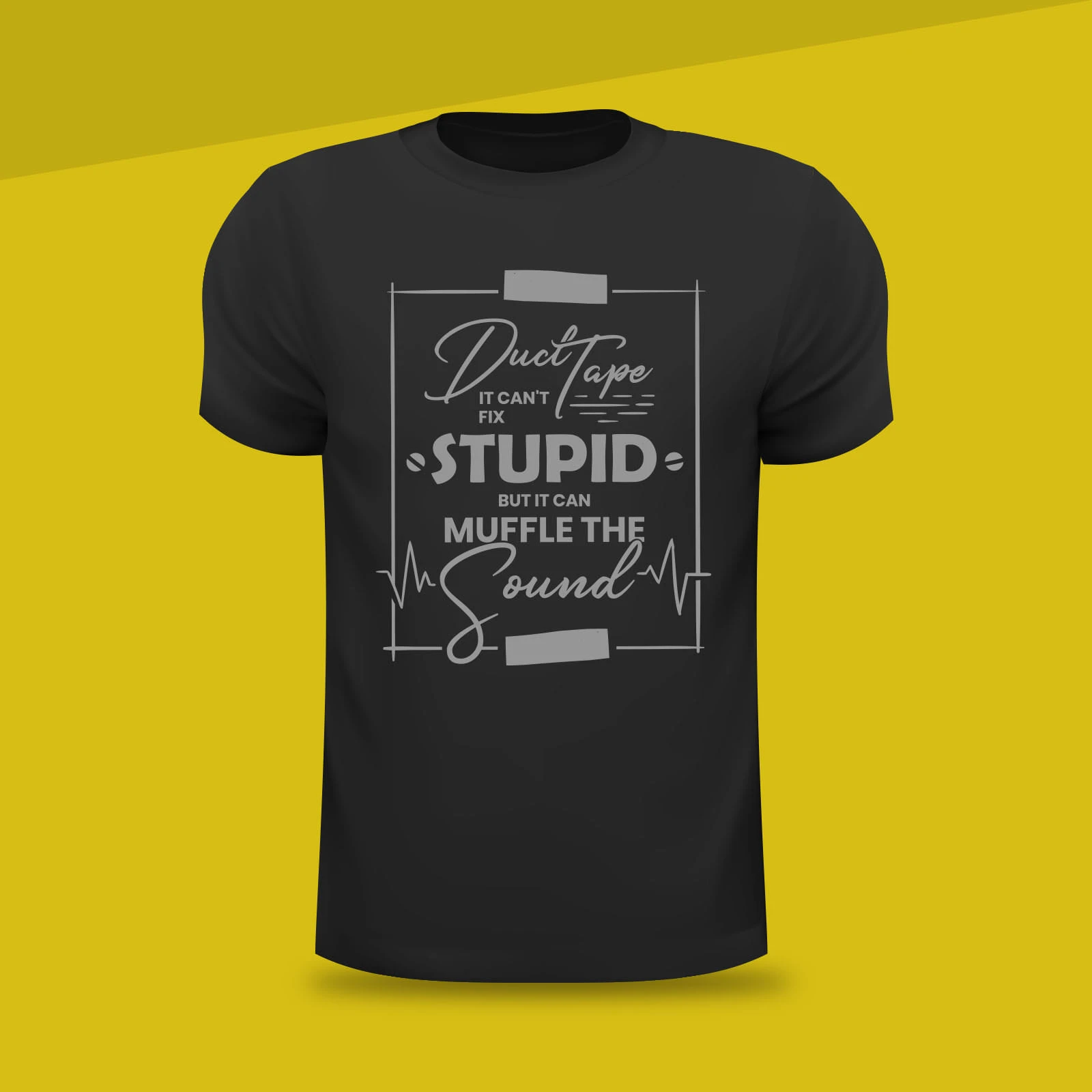
Font Selection
Graphic t-shirt designs are often created to help the wearer express a message, even if that message is as simple as the wearer’s name or the name of their company or team. A message is designed to be read, which means that font selection is just as important for your graphic t-shirt design project as it would be for the design of an advertisement, poster, or banner.
In fact, you may want to give a bit of extra consideration to the font for all of the unique reasons that we have already discussed in this article. Chiefly, the fact that your message will be printed on a flexible, textured surface. With this in mind, choose a font that will be easy to read in any size. You’ll also need to keep in mind the weight and texture of the imprinting ink that will be used to create your final design.
Graphic t-shirt designs are printed using much thicker, heavier inks than those used in other types of graphic printing. This means that overly fine or detailed fonts may not render properly. On the flip side, fonts that are too large or bulky may appear too “puffy” or stiff when printed on the final product.
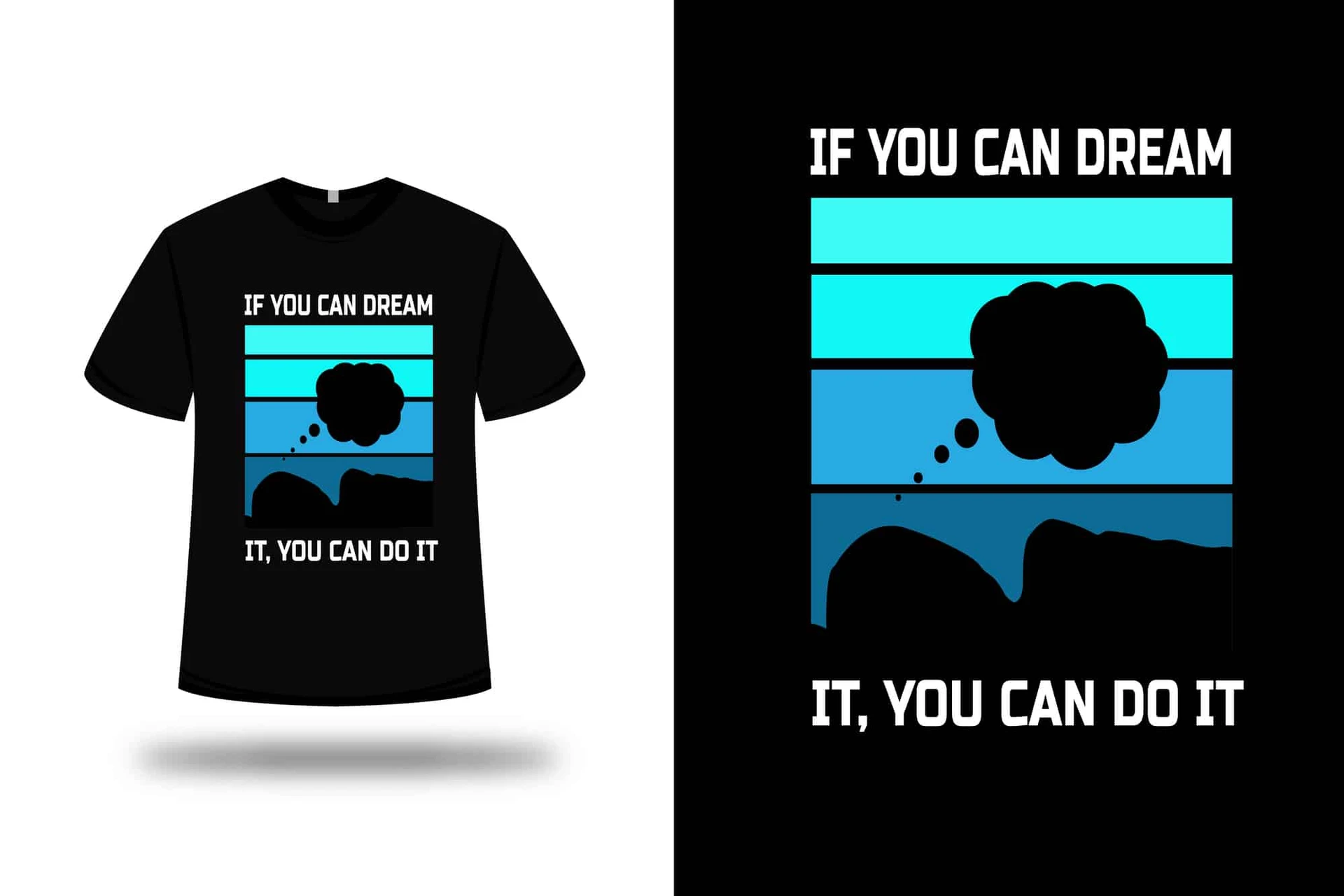
Getting Professional Graphic T-Shirt Designs
If all of this sounds like a lot to manage on your own, you could ensure the success of your next project by enlisting the help of a professional graphic designer to create your t-shirt designs. If you opt for this route, there are several options, though some are certainly more practical than others.
Unless you are the head of a major fashion brand, you are unlikely to have an in-house graphic design team at your disposal to create your t-shirt designs. This option is out of reach for most, so we won’t spend any more time there.
You could opt for enlisting the services of a freelance graphic designer on one of the large freelance marketplaces. This may be a viable option if you are looking for one simple design, however, these marketplaces do come with a strong “buyer beware” warning as there is little opportunity to vet the skill of the many freelancers on the site. Because of the built-in limitations on many of these marketplaces, the number of revisions available may be restricted, and you may not be guaranteed access to all of the files that you’ll need to actually use your final design.
For most, the best option is an all-in-one creative design subscription service like Flocksy.
Flocksy offers a full array of creative design services, including graphic t-shirt design. All work is performed by vetted professionals, and you can request as many designs as you like for one low monthly rate. Better still, if you are considering marketing your t-shirt designs as part of a broader business venture, your Flocksy flat-rate subscription will grant you access to all of the other design services you need as well.
Advertise your business with custom graphic designs, illustrations, and posts written by expert copywriters. You can even have Flocksy’s video editors help you create a fashion show clip of models showing off your designs.
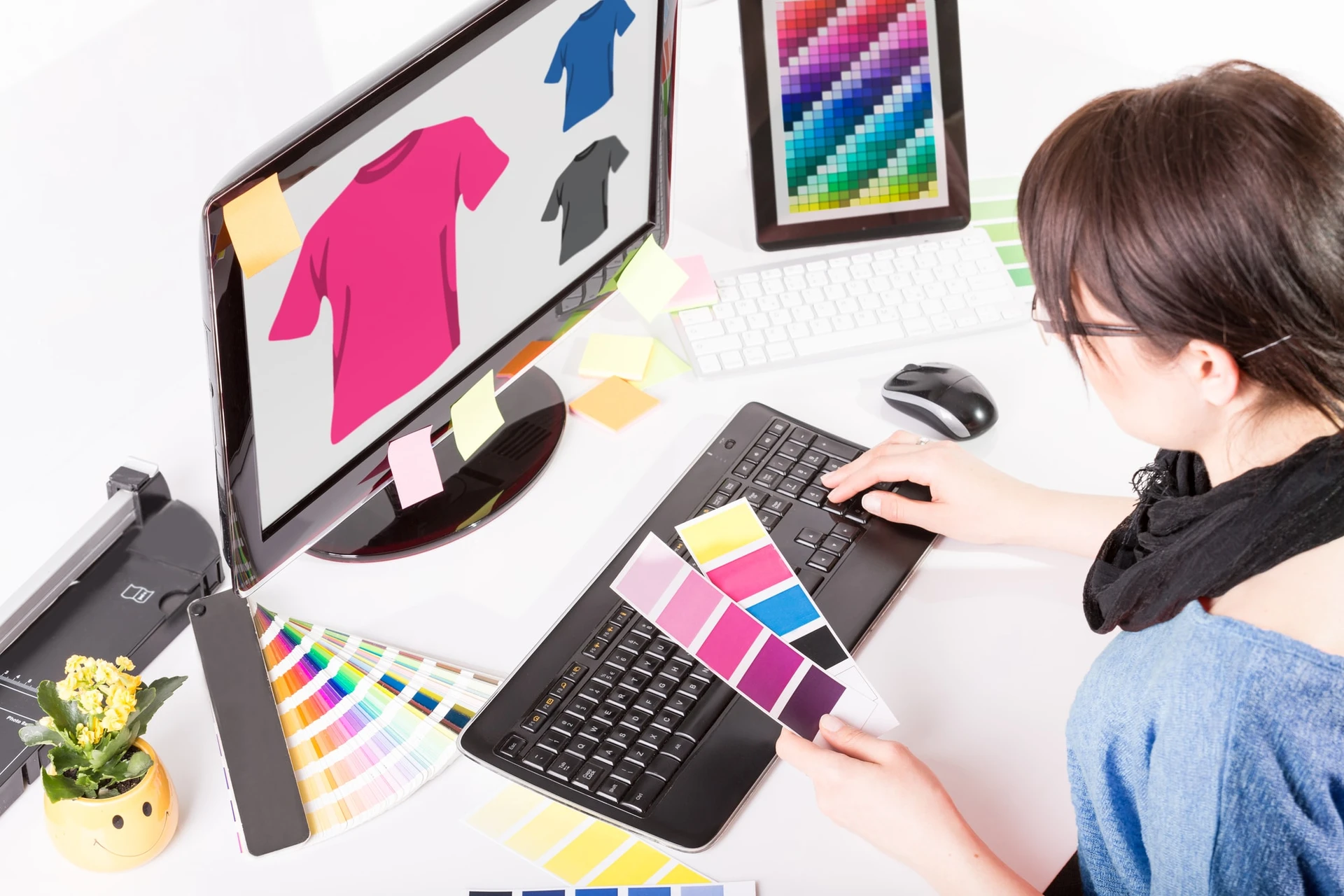
Creating Graphic T-Shirt Designs With Flocksy
Flocksy’s intuitive design platform makes it easy to get the graphic t-shirt designs you need fast. Simply select “create new project”, navigate to the “graphic design” category, and choose “ t-shirt design(s)” to open up a new project brief.
The brief will guide you through providing your artist with all the information they need to get started on your t-shirt design project. You’ll want to let them know how you intend to use the design, what color background and ink you have in mind, and what style of font or imagery you prefer. You’ll also want to include details about any specific messaging or branding that needs to be featured in the final design. Once your designer has all the details they need, they will get to work on your t-shirt design, and you should have your results back in as little as 24 to 48 hours.
You can approve your final design or work with your designer to revise the imagery until it looks exactly as you envisioned. When you are completely satisfied, you’ll receive all of the files you need to turn your design into a new t-shirt, sweatshirt, or another clothing item.
Need to market your new wearable creations? Flocksy’s team of graphic designers, illustrators, copywriters, and video editors can help you create social media posts, banners, advertisements, flyers, and more to promote your graphic t-shirts. It is all included in one monthly flat-rate subscription plan. No hidden fees, no contracts, and no stress.
It is really that simple! So what are you waiting for? Head on over to Flocksy and start designing your line of wearable art t-shirt designs now!
